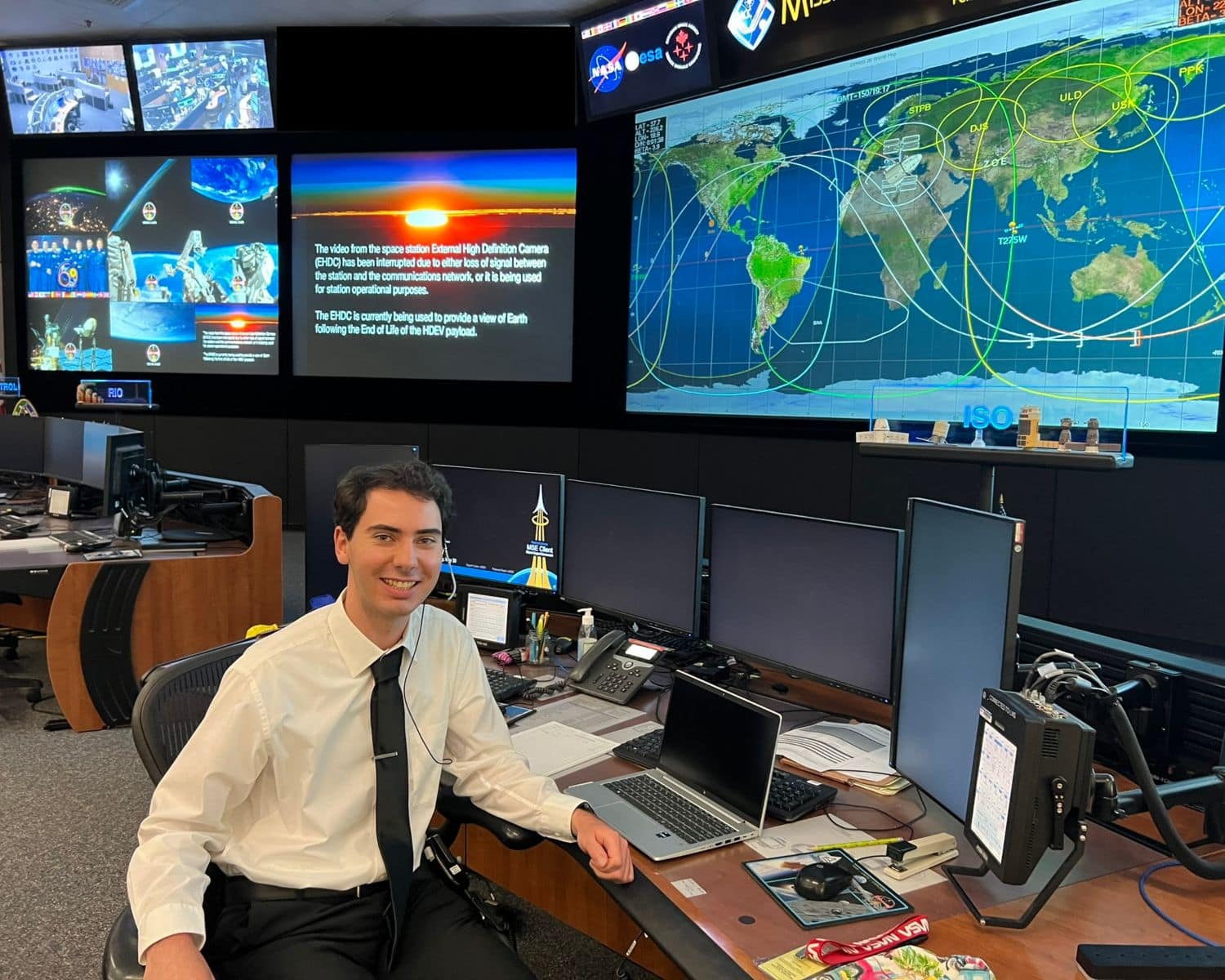

Aerospace Engineering Student Finding Inspiration in the Stars

A Growing Passion for Space
From an early age, Adam Moore (’24) was inspired by spaceflight history found through the uplifting accomplishments of our nation’s space program, from the Apollo 11 moon landing to the iconic Space Shuttle.
“I am motivated to work in the human spaceflight industry because it pushes the boundaries of what humanity is capable of, extending our reach beyond the Earth,” he shared. “The technologies and experiences necessary to attain and maintain these capabilities are very rewarding, even outside the industry. I believe we are going to achieve great things, and I want to contribute to the mission!”
The challenges and triumphs of flight crews and engineers gave Moore a meaningful mission to aspire for, which led him to start his journey by pursuing a B.S. in Aerospace Engineering on the Astronautics track with a minor in Computer Science at Embry‑Riddle Aeronautical University.
Internship Opportunities
 Aerospace Engineering major Adam Moore (’24) at NASA Johnson Space Center during internship opportunity (Photo: Adam Moore)
Aerospace Engineering major Adam Moore (’24) at NASA Johnson Space Center during internship opportunity (Photo: Adam Moore)
Moore’s passion for the aerospace industry goes far beyond academics at Embry‑Riddle. He worked at Space Center Houston, educating tourists on the exhibits, artifacts and history. In addition, he has had two internships, both at the National Aeronautics and Space Administration (NASA) Johnson Space Center in Houston, Texas, where he worked in both Engineering and Flight Operations Directorates, supporting the International Space Station (ISS).
In his first internship, Moore worked on a system that uses radio frequency identification (RFID) technology to manage inventory logistics onboard the ISS. He upgraded an ISS module analog to conduct exercises that improved the system's abilities to track items.
“Autonomously locating items is important for efficiently facilitating science and maintenance, as well as saving crew time,” he stated.
Moore has leveraged his previous internship expertise to revise procedures and training materials regarding the Inventory and Stowage Officer’s (ISO) use of the RFID system and translated it to his latest internship opportunity.
“In the summer of 2023, I joined the ISO group. ISO is a member of the Flight Control Team that works in ISS Mission Control, supporting daily crew and cargo operations,” he explained. “In addition to real-time support, the ISO team plans the long-term utilization of stowage space, for which I developed a tool that visualizes volume occupancy. This product was very important for its automatic updating of inventory levels; it saves hours of tedium every week!”
Most enjoyably, Moore had on-the-job training in observing the Flight Control Team in action from different consoles and scenarios.
The Future and Beyond
His early dreams of a career in human spaceflight are about to take flight as he approaches his senior year at Embry‑Riddle.
“Upon graduation, I foresee myself working full-time at Johnson Space Center and pursuing a M.S. in Systems Engineering,” he continued. “I have a goal of becoming a private pilot, which I am slowly working toward, and I would love to eventually lead the Flight Control Team as a flight director.”
Moore’s unwavering determination and passion, coupled with the knowledge and unique experience gained at Embry‑Riddle, has well-positioned him in the aerospace engineering industry.
Advice for Eagles
From finding early inspiration in human spaceflight to pursuing his dreams at Embry‑Riddle, Moore offered a piece of advice for future Eagles.
“Excel in your work, be a leader and don’t be afraid to ask for help,” he reflects. “Being excellent in what you do will make you known as a dependable person, a valuable aspect of any team member. Being a leader in your community builds confidence and connections. Ask for help when you need it; many people enjoy helping others and you’ll learn something!”

